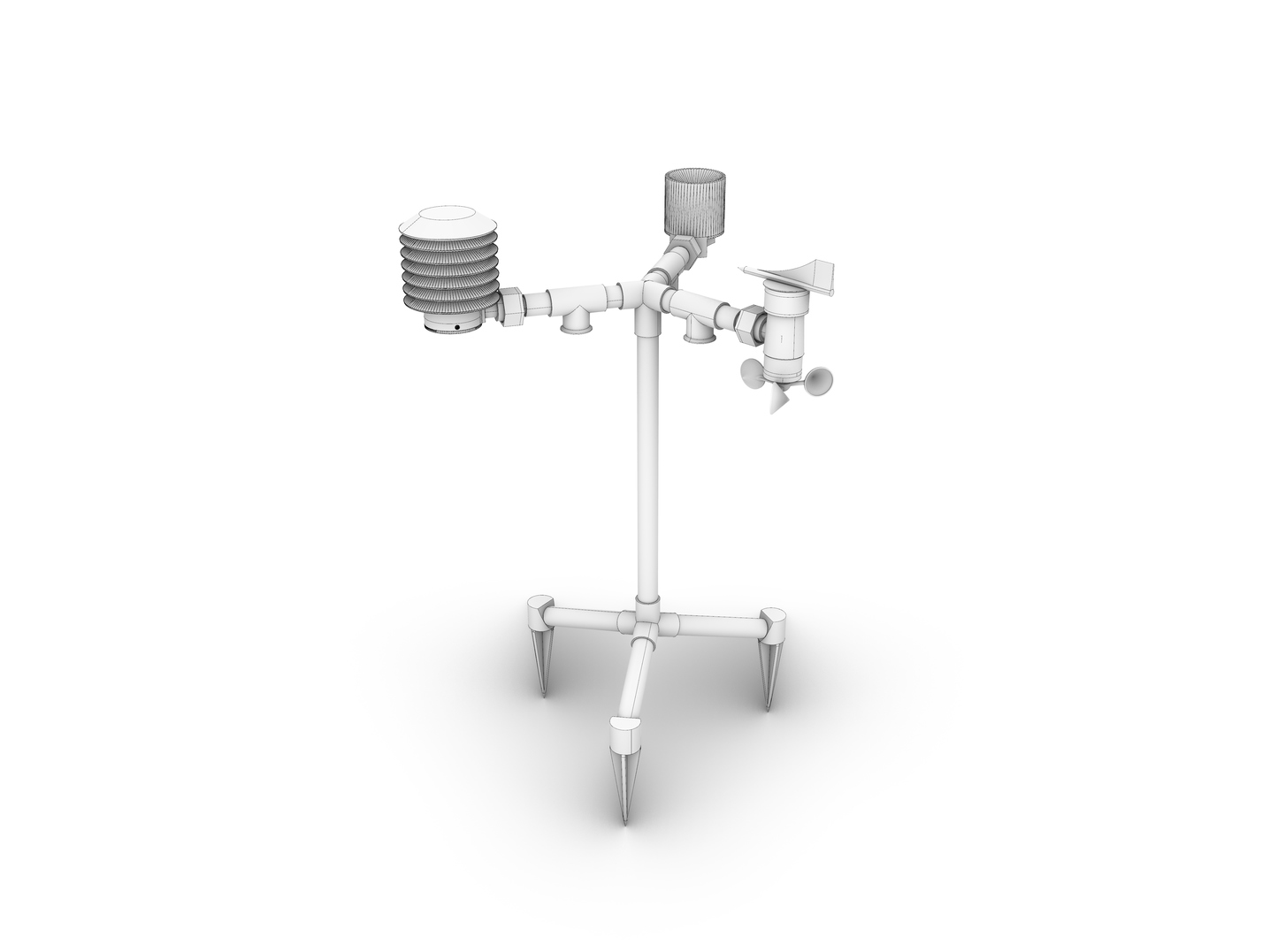CHORDS now taking in data from NCAR’s OpenIoTWx platform!
Workforce diversity in the geosciences can be enhanced by embracing not only science expertise but also engineering, software, data wrangling and other support areas. Furthermore, bringing climate data sampling to local communities can pique the interest of a future workforce interested in climate, weather and more broadly science, engineering and technology. Fortunately, we are in the midst of a revolution of ubiquitous sensor data which is democratizing data access to an unprecedented level. The OpenIoTwx platform, consisting of 3D printed parts as well as very inexpensive electronic components and sensors, has tremendous potential to bring local weather (and other community) data to traditionally underserved communities.
Here is an example of what a 3D printed weather station looks like:
By embracing the diverse skills needed to construct these IoTwx platforms, placing them at or near libraries or community colleges in rural communities and making the local weather data easily accessible through EarthCube’s Cloud-Hosted Real-time Data Services for the Geosciences (CHORDS) project, we are stimulating interest in student and citizen science, the geosciences and data-driven community decision making across a wide range of community partners and stakeholders.
Threats to rural communities are particularly large given increasing climate change impacts, and with both historical and real-time data often in short supply, decision-making, modeling and planning are rendered ineffective during short-term crises and trend analysis for medium term planning lacks statistical certainty. Through the collection and access of these data, an IoTwx station positioned in a local community could enhance understanding of severe weather phenomena and spark interest in atmospheric science and STEM careers. As part of a small NCAR Diversity grant, we have first partnered with rural Colorado Community Colleges and are working with STEM educators to engage 2YC students. In the future, we are working with colleagues to expand this effort to include Historically Black Colleges and Universities.